Dear friends,
You’re reading this on a device. This device comes pre-installed with programs. Programs we take for granted like “click the X button to quit” or “tap the power button to illuminate the screen”. These programs collectively make up the “Operating System” of the device.
We, humans, also come pre-installed with programs. These are ancestral scripts baked into our DNA. They dictate how we respond to external stimuli, and have been molded by thousands of cycles of evolution.
300,000 years ago Homo Sapiens appeared
One generation is ~25 years
300,000 / 25 = 12,000 cycles of evolution
Readers of Zero to Fashion Empire know—I am personally invested in media-production over the next 10 years. Therefore I’m incentivized to—and I’ve been obsessed with—studying human behavior—since that lies at the heart of what effective media is.
In the last few weeks, I’ve spent well over 100 hours studying persuasion. I’ve learned so much about the Human Operating System, and now I’d like to share the 1% signal—not the 99% noise—in as distilled form as possible.
But first, let us define a few terms:
Persuasion (n): is the act of causing a behavior to happen—that never would’ve happened otherwise.
Somebody is at baseline—autopilot. Then enters a “stimulus” that jolts them to act differently. That “stimulus” is a “persuasive act”. Examples:
Somebody hands you a document and says “Sign here please” — which, without that command you never would’ve signed the document.
A voice in your head mumbles “I am an athlete” and “athletes exercise (duh)” therefore “I will go to the gym today” — which, without that belief you never would’ve gone to the gym.
A news broadcast says “Major disaster. Stores overrun. Supplies running low!!” Causing you to drive to the store to grab what’s left — which, without that messaging you never would’ve bought the goods.
Potency (n): is how readily we respond to a stimulus.
aka how attuned our nervous systems are to it
aka how effective it is when affected on ourselves and others
Human beings all respond to the same set of stimuli—in a very predictable way.
These stimuli are:
The bigger the font, the higher the potency
Fear
Authority
Identity
Sex
Everything else:
Generosity
Inspiration
Reason
etc…
Let us travel back in time. Rewind 200,000 years to hunter gatherer times when we lived butt-naked in tribes of 30 people in the African bush.
For any given stimulus—to measure its potency—simply invert the question:
What are the CONSEQUENCES of NOT RESPONDING to X stimulus?
1. FEAR: If our ancestors didn’t respond to fear, they died.
2. AUTHORITY: If our ancestors disobeyed the tribal leader, they got kicked out of the tribe, and died.
3. IDENTITY: If our ancestors didn’t fit in, or acted in ways incongruous to their role, they got left behind by the tribe, and died.
Imagine you’re the medic of the tribe. That’s what you’ve identified as and that’s what everyone else sees you as. One day you decide to refuse to help the injured.
You’re now breaking away from your identity. You’re acting in ways incongruous to it.
The tribal leader, disgruntled, reassigns you to be a hunter.
You comply—because you follow authority. (see #2)
When hunting with your tribemates, you chase butterflies and sing songs. You scare away the animals.
You’re now acting in ways incongruous with your role.
Everyone in the tribe is (rightfully) pissed at you.
You can see where this is heading…
If you keep this up, you will eventually be left behind by the tribe.
Alone in the African bush—you die.
4. SEX: If our ancestors didn’t respond to sex, they didn’t make babies that day, but they lived to survive another day—and they can try again tomorrow.
Most people would agree sex is a potent stimulus—but I would argue it’s weaker than identity since identity has life/death consequences while sex doesn’t.
Imagine you’re a cameraman hired to shoot a porn movie starring two sexy actors. Why don’t you get involved in the scene? Maybe you want to… The answer is because you’ve identified as being a cameraman, and that identification is so strong that it overrules your base impulses.
5. GENEROSITY: If our ancestors didn’t respond to generosity, they may not receive such generosity next time, but they lived to survive another day.
6. INSPIRATION: If our ancestors didn’t respond to inspiration, things would continue as normal, and they lived to survive another day.
Inspiration looks like—Hey I see a guy rubbing two stones together to make sparks. Let me try it out for myself!
Monkey see, monkey do—belongs in this category
Mimesis belongs here
“Leading by example” belongs here
7. REASON: Our ancestors didn’t respond to reason because language wasn’t developed in hunter-gatherer times.
If reason existed, it would look like—Hey I noticed the river is rising 2 finger-lengths every 30 sun cycles and at this rate in 90 cycles it’ll flood our camp so we should move our tribe sometime before that if we want to stay dry.
The Human OS:
Most people think it is this:
Our human operating system is governed by reason. We are utility-maximizing creatures who act with rational self-interest. Periodically we get “inspired” to act in different ways. And we respond to generosity and sex and once in a blue moon we get scared but we never let that affect us.
That is BS.
Our Human OS looks more like this:
Our ancestors responded to fear
Our ancestors followed authority
Our ancestors fit in with the tribe
Because if they DIDN’T—they DIED. And the consequence being—they had no children. And you wouldn’t be here reading this. Your very existence is proof to the contrary.
A Few Examples:
1) How to Stay in Power
Bold: Fear
Italics: Authority
[ Brackets: Identity ]
If you are [a member of Communist Party, you listen to me] because I am the party leader. If you don’t, you will be locked up.
2) How to Win an Election
The Modern Political Campaign Playbook:
Step 1. Induce fear into the population
“Dangerous people are pouring into the country. Drug dealers. Rapists. Murderers.”
Step 2. Associate your political opponent with that fear
“If Biden is elected, he’ll start World War 3. Your children will die. Our country will go to hell.”
Step 3. Position yourself as the authority figure who will alleviate that fear
“Your only hope is me. With me, you have secure borders. With me, you have jobs. With me, you’d have no wars.”
Step 4. Use identity to solidify your base and bring in new voters
If you are a member of the Republican party—you vote for me.
If you have common sense—you vote for me.
If you’re the type of person who wants a change in the status quo—you vote for me. [= Drain the swamp]
If you’re the type of person who wants to see America be great—you vote for me. [= MAGA]
3) How to Use Identity to Persuade
“Here’s to the crazy ones. The misfits. The rebels. The troublemakers. The round pegs in the square holes. The ones who see things differently.”
Steve Jobs is getting you to agree with a series of identity statements. If you find yourself even remotely identifying with one of these terms, you’ll very likely be open to hearing what’s coming next:
“They’re not fond of rules. And they have no respect for the status quo. You can quote them, disagree with them, glorify or vilify them. About the only thing you can’t do is ignore them.”
Steve is stacking up more identity agreements. And he’s making you feel good about identifying with them. If you are still following the quote, then consider yourself very primed to agree with whatever he says next:
“Because they change things. They push the human race forward. And while some may see them as the crazy ones, we see genius. Because the people who are crazy enough to think they can change the world, are the ones who do.”
This is Steve’s “call to action”. He wants you to agree that you can change the world, and push the human race forward. Given that you have just agreed with a series of identity statements, this persuasive act is 10x more potent than if he had just stated his CTA directly.

4) How to Persuade the Masses without Fear
Gary Vaynerchuk is an interesting case study—in that his goal is to persuade as many people as possible—but he chooses deliberately not to use fear.
To lead with generosity isn’t unique, per se—but hardly anyone is doing it at the scale that Gary is operating at.
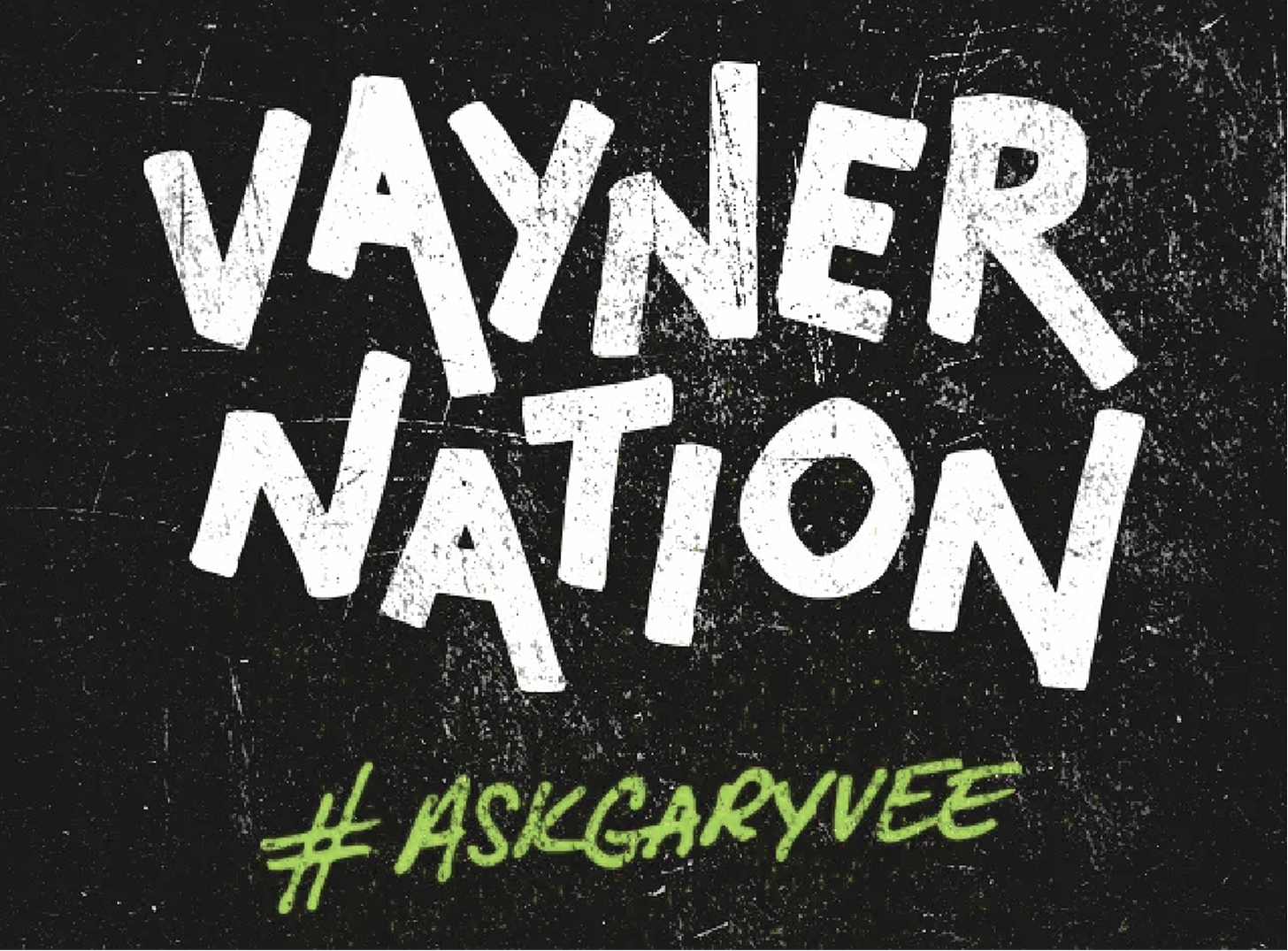
5) Why reason is overrated
Reason alone hardly ever persuades, but combine reason with more potent stimuli and you got a shot.
Remember during the Coronavirus pandemic? There was the famous line:
“Follow the science!”
or “Listen to the scientists!”
It is a textbook example of combining reason + authority.
6) How to use reason to persuade
Remember when I said “reason is overrated”?
Well, here is an exception.
Usually, scientific papers persuade indirectly via authority—the reputation of the Journal, the reputation of the individual authors, the number of citations, their h-index, the institution they are affiliated with. But the 2008 Bitcoin paper had none of that. The author(s) were anonymous, it was published on a random website called metzdowd.com, and there wasn’t any institutional association. But no one can argue Bitcoin hasn’t changed the world—it won by merit of idea alone.
Want to read more?
Want to learn how you can persuade yourself, others, and/or a large group of people—to do anything?
Want to be able to recognize when persuasive acts are being used on/against you—so you can respond effectively—in a way that you choose?
I will release the full series if/when one of these two criteria are met:
The post receives 100 likes on Substack
I get 10 emails asking for more
Thanks for reading, and until next time!



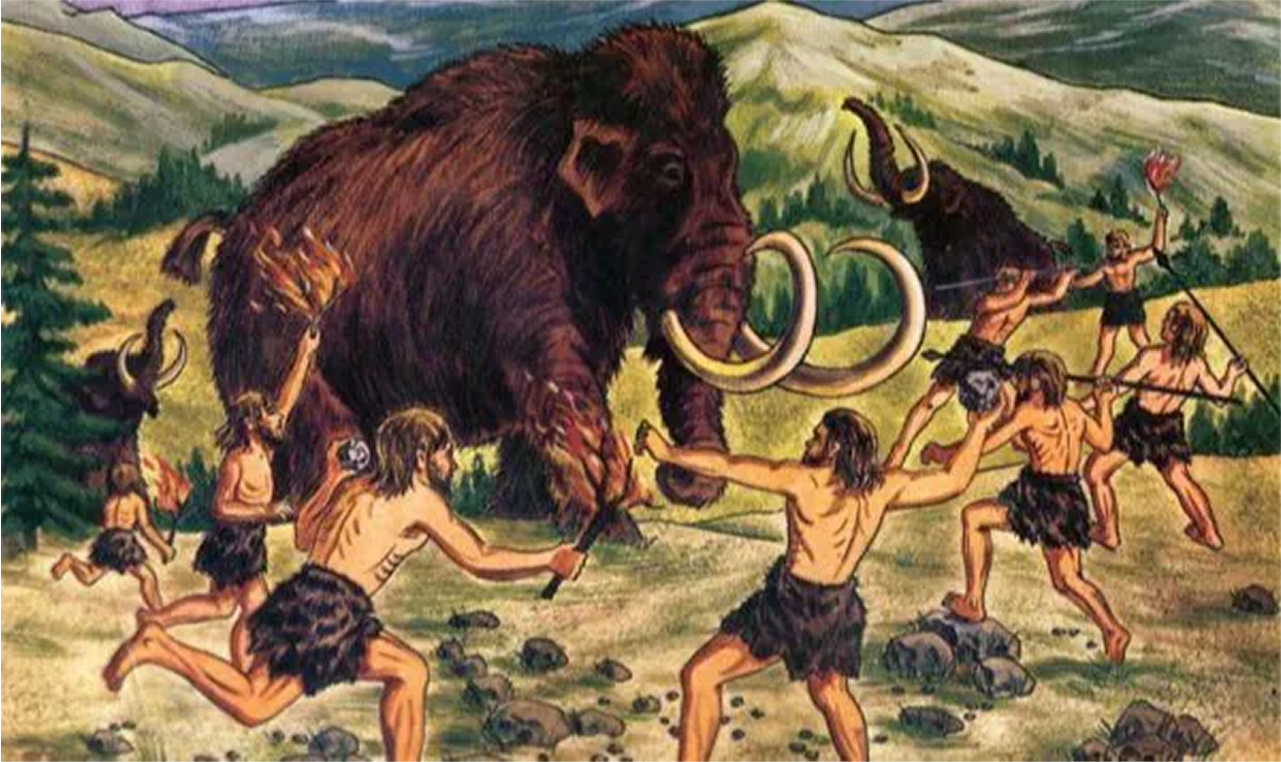


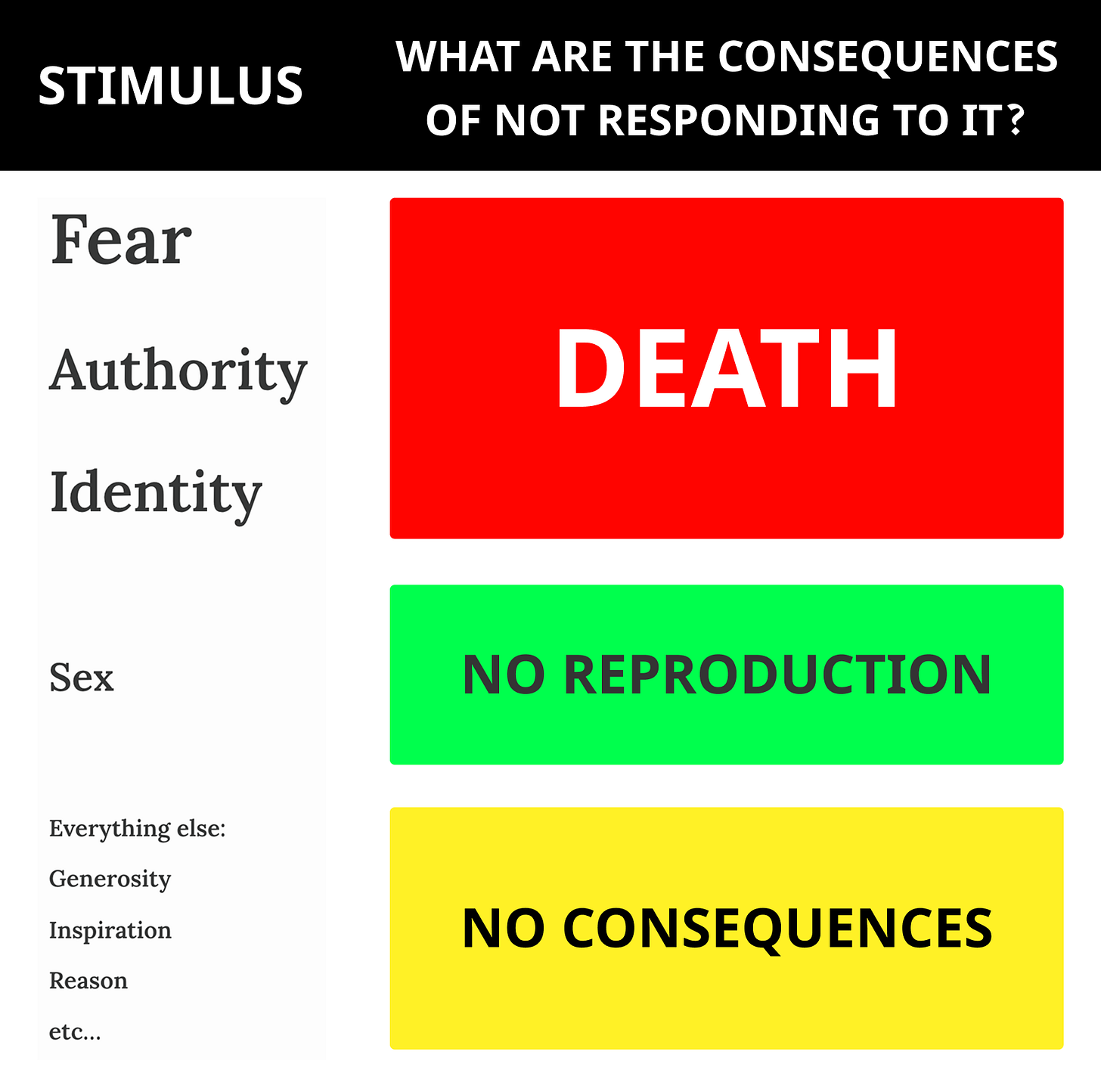

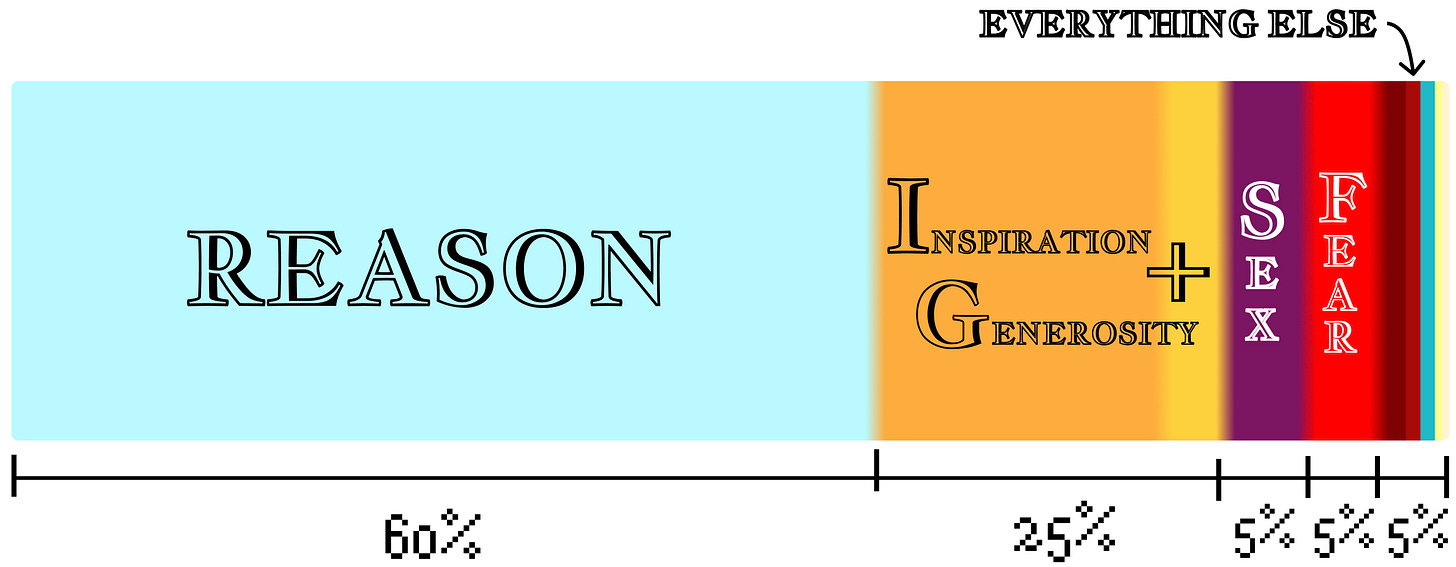
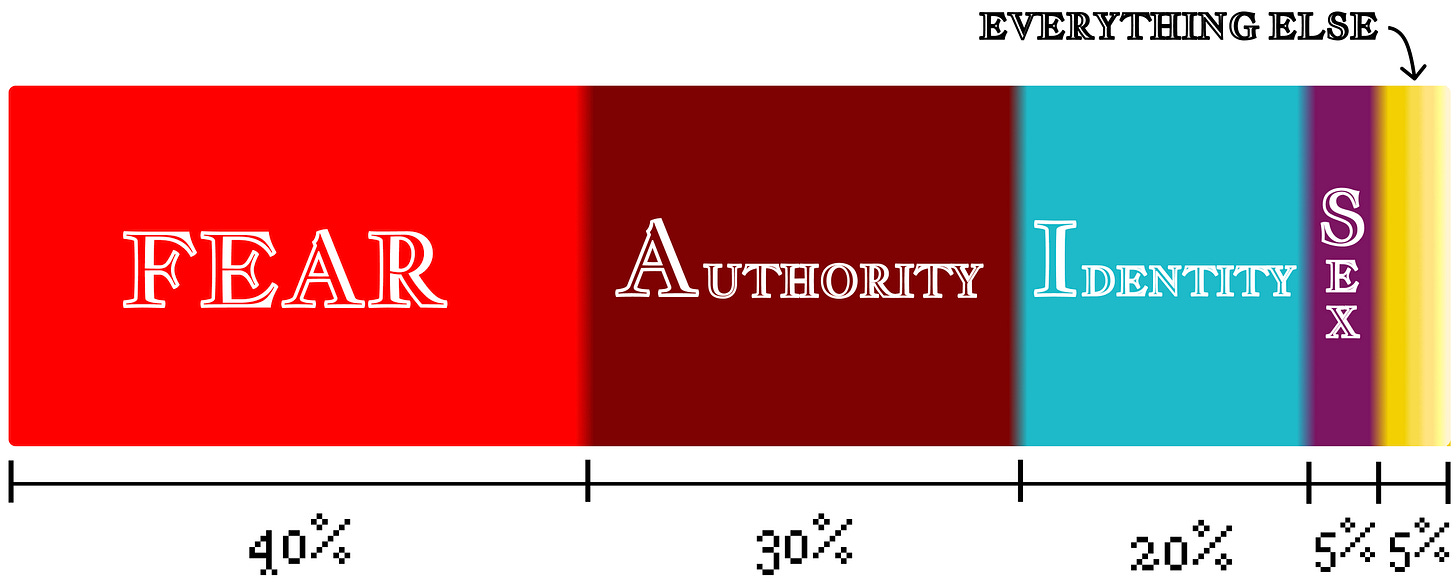

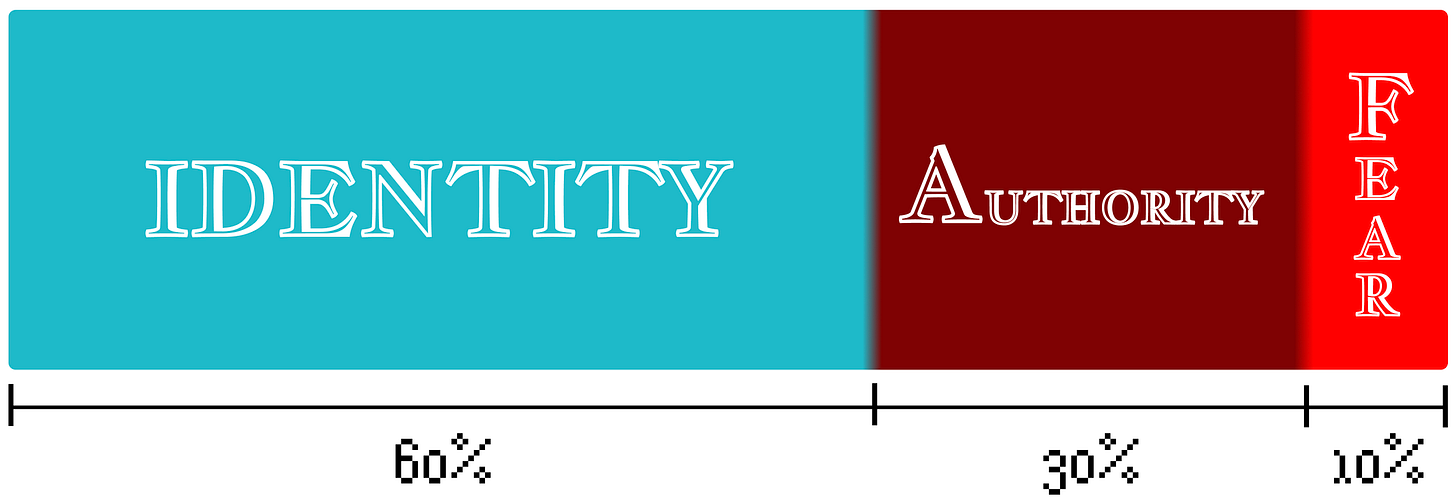


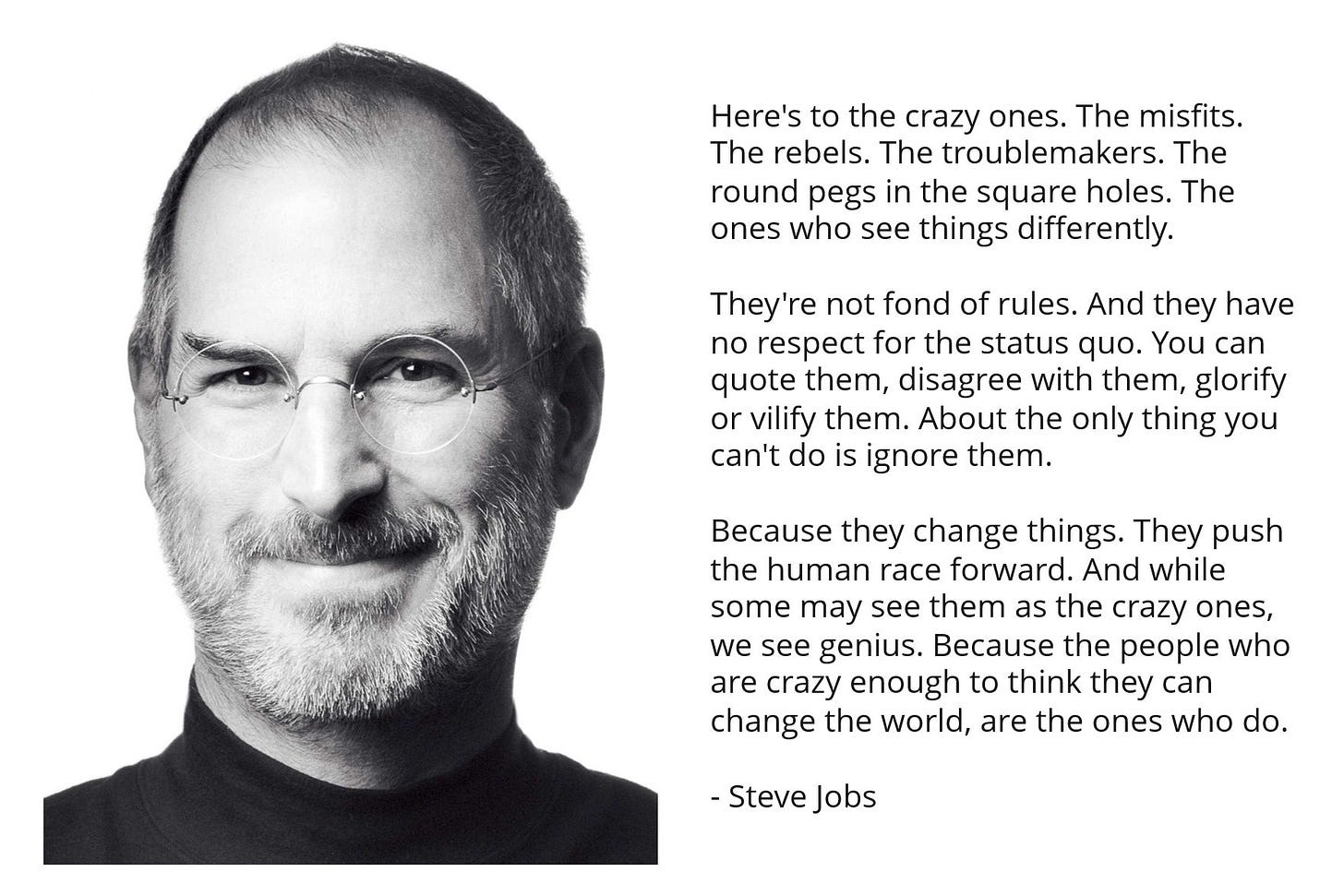
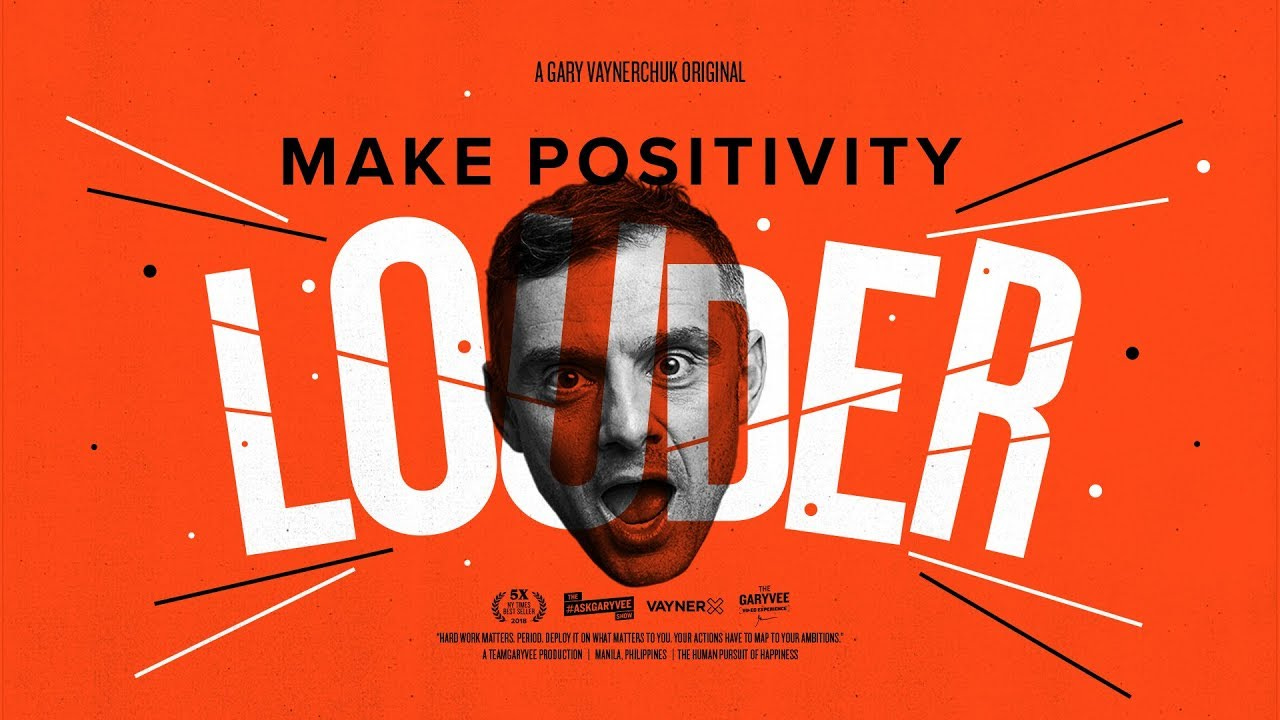
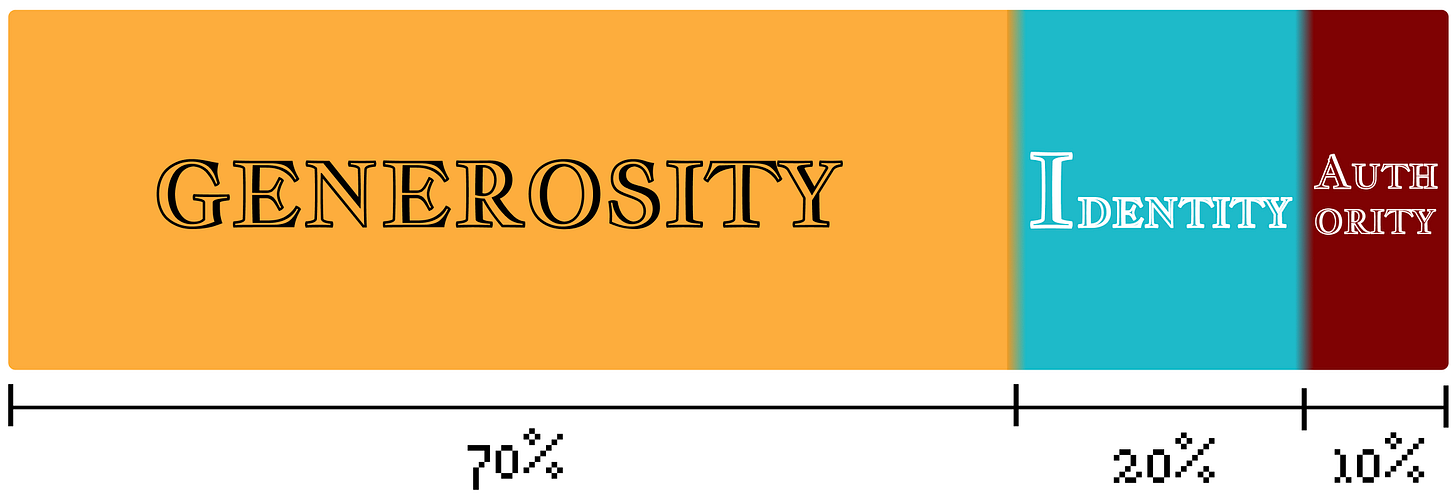
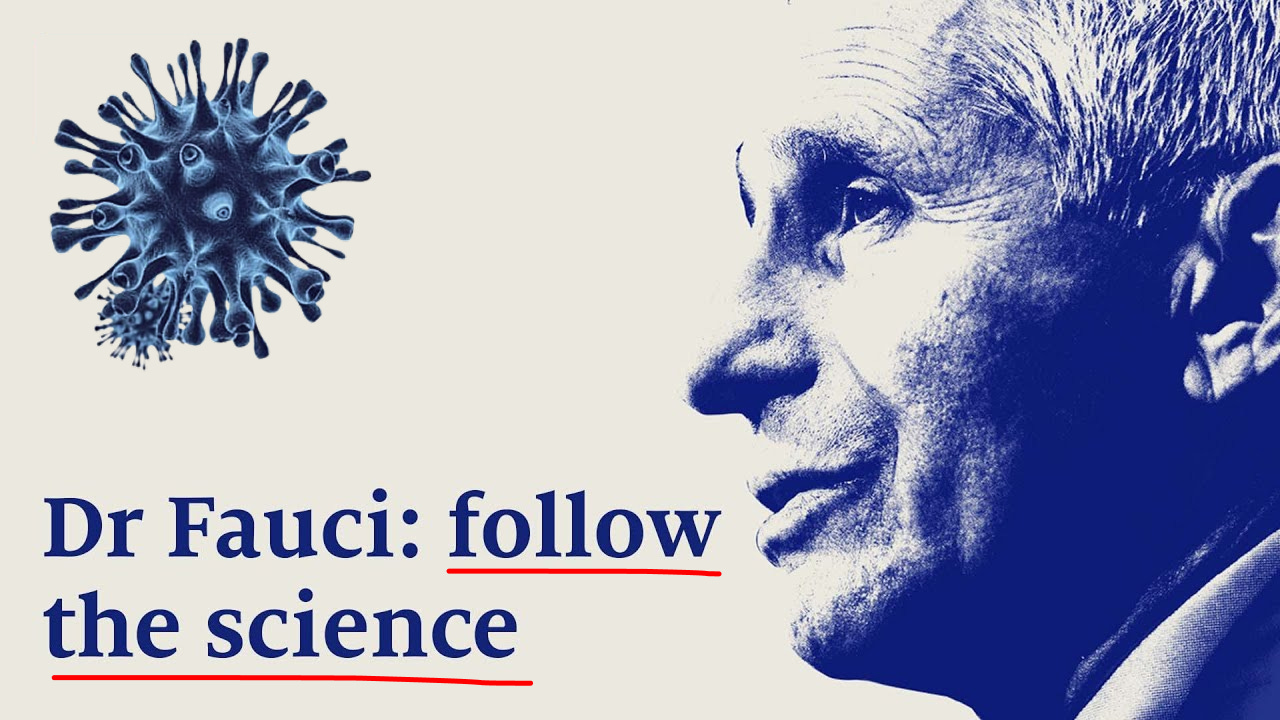

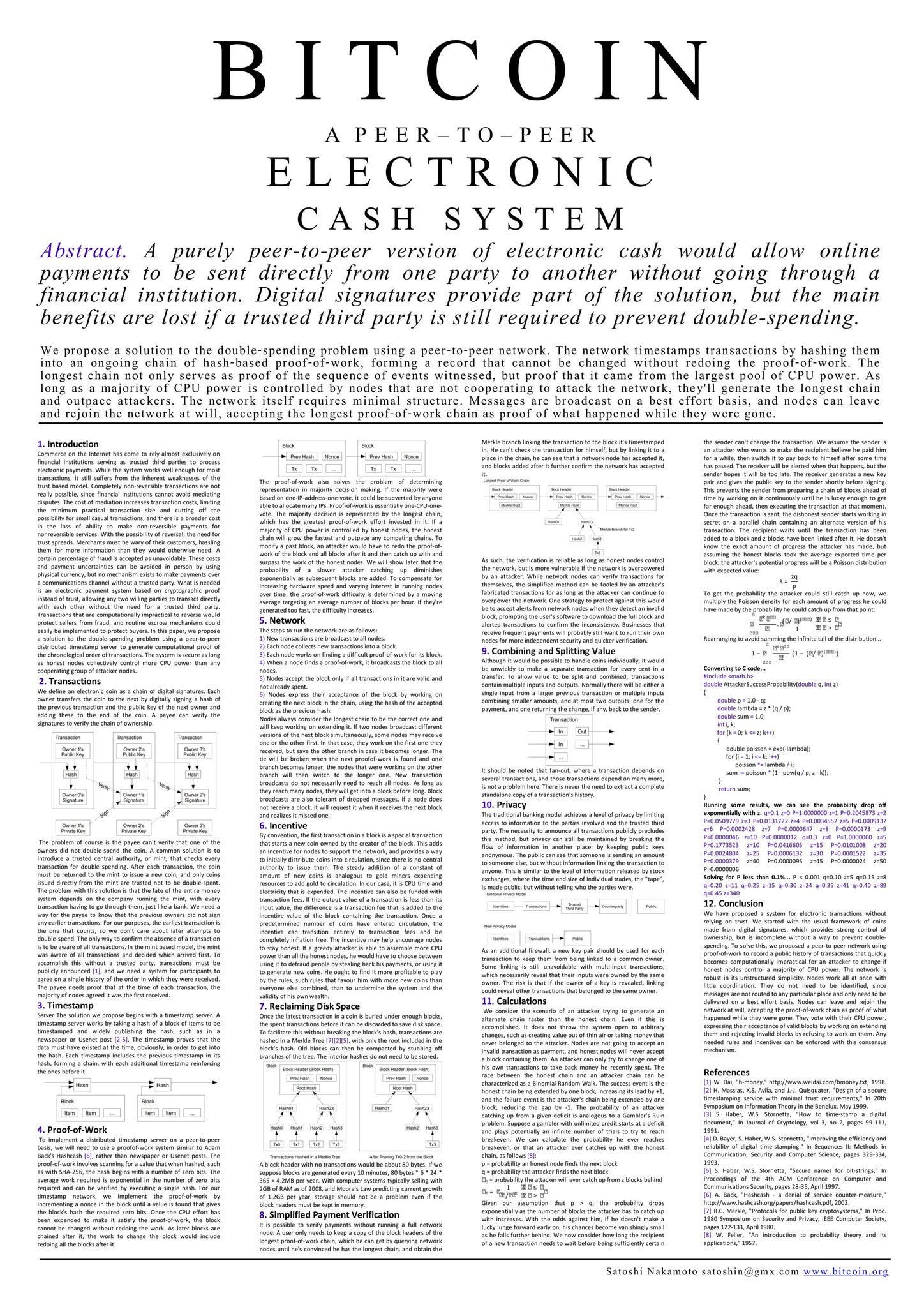

…why do i feel like you are now using the entire deck of persusaive superlnowledge to persuade me to do something…
If I emailed you ten times, it technically means you’d do the whole series right? Right? 😂